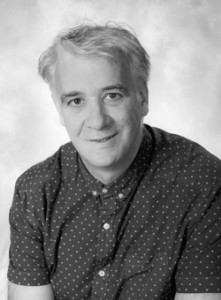Professor Peter Grootenboer came to academia after experience with middle school leadership at a young age. His lived experiences inspired his research in understanding practices to inform and improve teaching, learning and leading.
 As the former Director of GIER, Peter has a wealth of experience in leadership, professional and practice development, leading change and mathematics education. His journey into academia, however, was not straight forward.
As the former Director of GIER, Peter has a wealth of experience in leadership, professional and practice development, leading change and mathematics education. His journey into academia, however, was not straight forward.
Peter was accepted to study medicine after high school. However, he decided to transfer into physical education with the intention to become an athlete at the time, citing his lack of motivation for rigorous study as the reason.
After graduating as a Physical Education teacher, Peter taught in schools and found himself pulled into teaching mathematics due to the shortage of teachers. Peter was appointed to school middle leadership as the youngest teacher at his school, first as Head of Department and then as a Deputy Principal. Peter speaks of his career progress with humour and modesty, stating “I didn’t read a book until I was 37.”
Despite the later start, he completed a Masters in Educational Leadership and EdD in Maths Education and found himself working at the university to understand and improve knowledge around educational middle leadership.
When Peter, with his colleagues Christine Edwards Groves and Karen Ronnerman from Sweden, began this work 12 years ago, there was little understanding of the factors enabling and constraining middle leadership.
“Until the last couple of years, we have been the only ones in the world, doing significant research in this field, so we’ve been responsible for the majority of literature in the field. The work we’ve been doing over the last 10 years has culminated in the current ARC project on middle leadership.”
On the lessons and insights gleaned from over a decade of research in this field, Peter says:
“Middle leaders are often talked about as aspiring principals but most of them don’t necessarily want to be principals or even likely to take this path. They are much more interested in what happens in the school in teaching and learning.”
He says that middle leaders exist in a liminal space, between the teaching staff and the more senior leadership, and it can be a lonely space.
“Middle leaders are teachers, but they also are also responsible for good teaching and learning in other classrooms. However, for many, their background in leadership is limited to what they’ve learned by osmosis. The best support for these people is around how to lead learning.”
Peter has received great acclaim for this work, culminating in receiving an honorary doctorate from Gothenburg University in Sweden this year.
“I’ve written quite a few articles and books on middle leadership. It’s been picked up widely in Sweden and they are using it a lot.”
Another key feature of Peter’s work has been in practice and practice theory. He published the seminal book on this topic “Praxis, Practice and Practice Architectures” in 2014.
The theory of practice architecture consists of sayings, doings and relatings. These factors are enabled and constrained by cultural discursive arrangements, the material economic arrangements and socio-political arrangements.
Peter says:
“The theory of practice architectures is now being used in medicine and a whole range of fields. We don’t look at what people think or say, we look at what they practice. So how thoughts and feelings affect practice and how teaching and learning unfolds in time.”
He enjoys working with people in the profession and seeks to make his research accessible for bother teachers and academics in the field.
“What motivates me is being able to make a difference. It’s not just a field of knowledge, it’s a practice that informs what happens. We try to work hard with people in the profession. When I wrote about this work, I wrote one book for teachers, and another one for researchers and academics.”
Peter recently presented a Keynote at the “MERGA” 2022 Maths Researchers Conference in Launceston on “Practice theory in maths education – What is learning.”
Read more about Peter’s work on his Griffith Experts page and below.

The Practices of School Middle Leadership: Leading Professional Learning
 Changing Practices, Changing Education
Changing Practices, Changing Education


